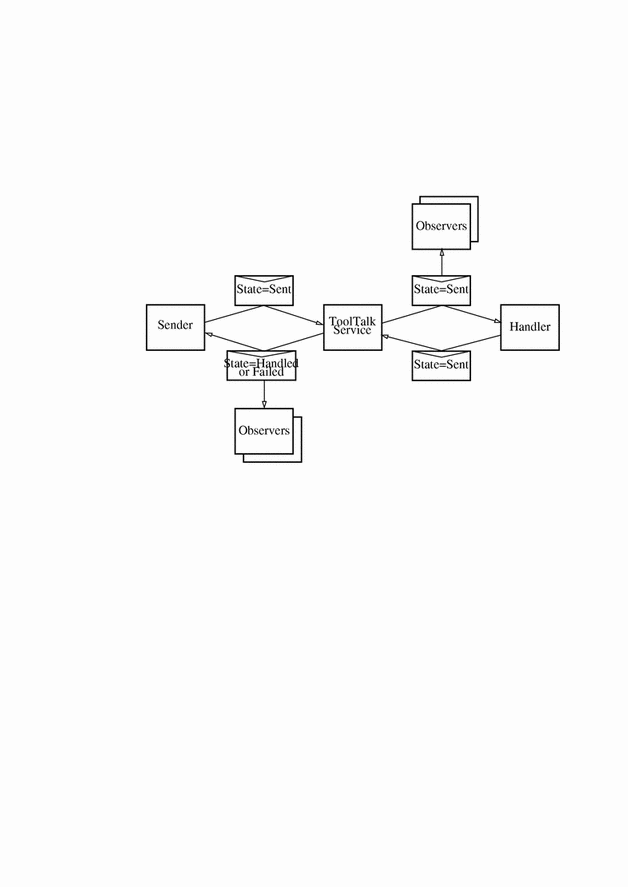How the ToolTalk Service Routes Messages
Applications can send two classes of ToolTalk messages, notices and requests. A notice is informational, a way for an application to announce an event. Applications that receive a notice absorb the message without returning results to the sender. A request is a call for an action, with the results of the action recorded in the message, and the message returned to the sender as a reply.
Sending Notices
When you send an informational message, the notice takes a one-way trip, as shown in Figure 8-1.
Figure 8-1 Notice Routing

The sending process creates a message, fills in attribute values, and sends it. The ToolTalk service matches message and pattern attribute values, then gives a copy of the message to one handler and to all matching observers. File-scoped messages are automatically transferred across session boundaries to processes that have declared interest in the file.
Sending Requests
When you send a message that is a request, the request takes a round-trip from sender to handler and back; copies of the message take a one-way trip to interested observers. Figure 8-2 illustrates the request routing procedure.
Figure 8-2 Request Routing

The ToolTalk service delivers a request to only one handler. The handler adds results to the message and sends it back. Other processes can observe a request before or after it is handled, or at both times; observers absorb a request without sending it back.
Sending Offers
Offers are messages similar to Requests. However, responses are not expected when data are sent. Also, you can tell how many potential recipients there are for the message at the time it is sent. You can also tell whether those recipients have accepted, rejected, or "abstained" the message. Consequently, Offers is less general than Notices and Requests.
Changes in State of Sent Message
To allow you to track the progress of a request you sent, you will receive a message every time the request changes state. You will receive these state change messages even if no patterns have been registered, or no message callbacks have been specified.
- © 2010, Oracle Corporation and/or its affiliates
